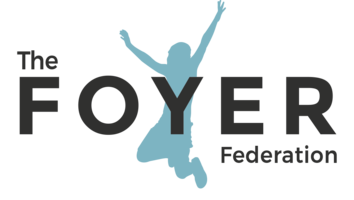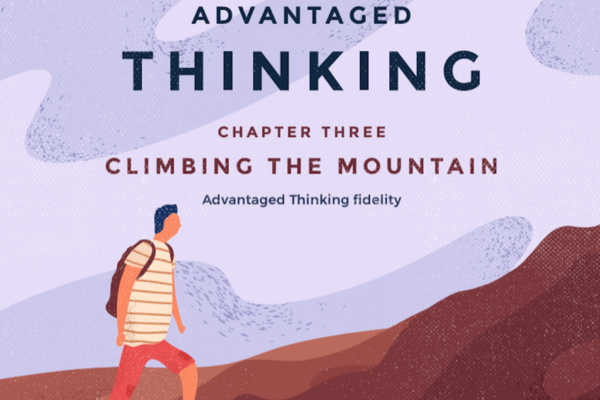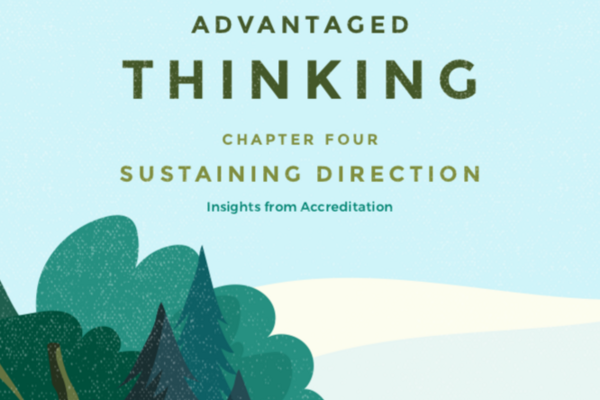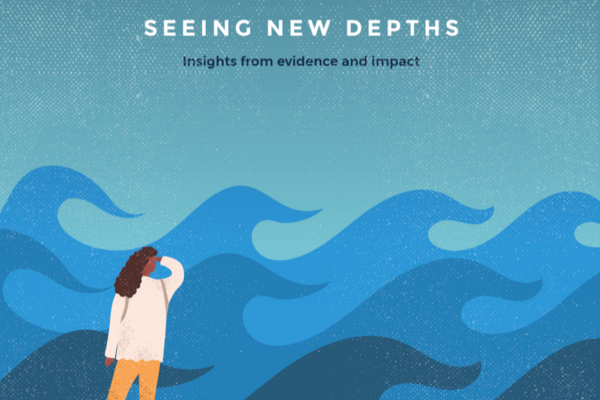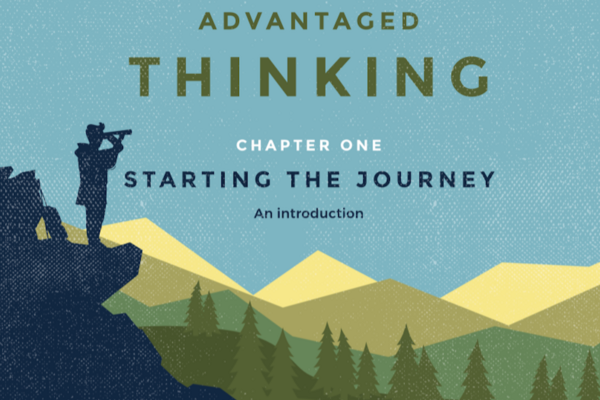“Advantaged Thinking is like climbing a mountain range. The 7 Tests offer us guide ropes for the climb; to which the practice principles developed with the Brotherhood of Saint Laurence offer secure footholds for ascent. At the summit lies the opportunity to reflect on learning and future destinations, which Fidelity Standards support.” Colin Falconer, InspireChilli
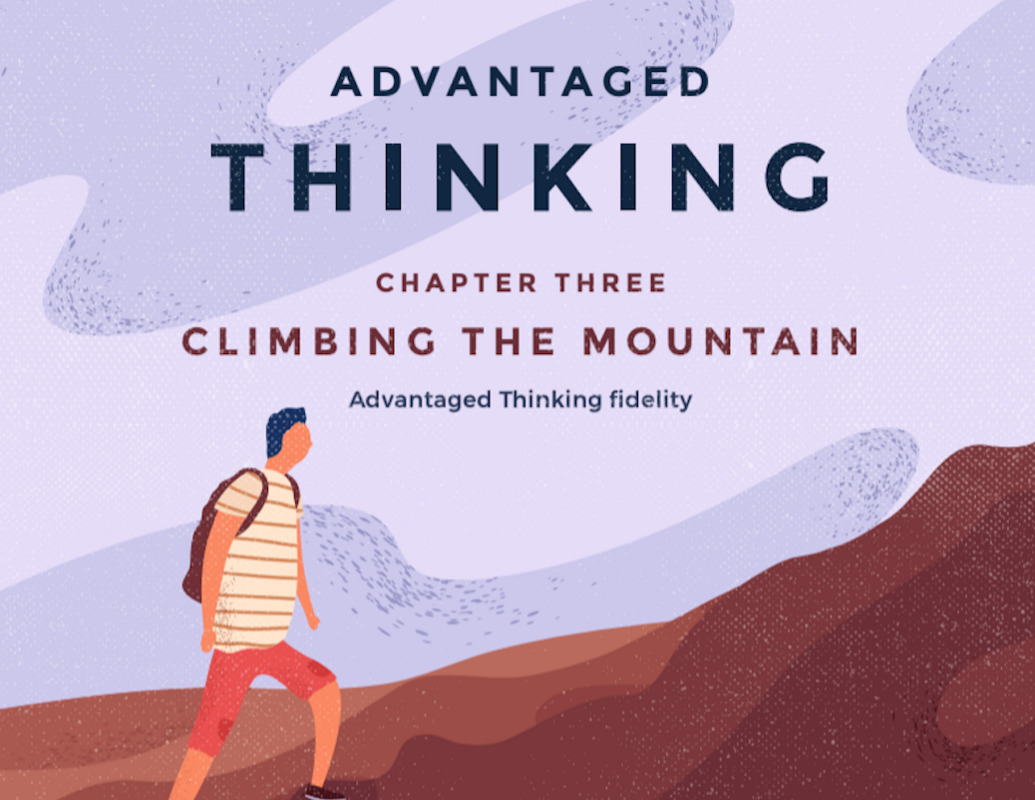
Becoming Advantaged Thinking starts with vision, ambition and inspiration. But how can a service practically embed it into its culture and practice – especially when so much of the external context is rooted in responding to deficits? Climbing the Mountain explores ways to approach this common challenge while staying true to Advantaged Thinking’s spirit and intentions.
Where to start?
The Foyer Federation realised that there was often a difference between the ambition to be Advantaged Thinking and the actual practice of organisations that sometimes remained stuck in deficit-based policies and systems. In response, the Federation set out to develop safeguards to differentiate between Advantaged and Disadvantaged Thinking, with a focus on promoting development of the skills, behaviours and practices that ensure the former.
This can be described as an emphasis on ‘fidelity’ – to ensure Advantaged Thinking is being fully actualised in the context of a service’s leadership or delivery. Fidelity, as the Cambridge Dictionary describes, refers to “the degree to which a copy of something shows the true character of the original.” This can be understood in terms of being true to the spirit and intentions of Advantaged Thinking and evidencing how Advantaged Thinking is actualised.
The third chapter of Adventures in Advantaged Thinking covers:
- An overview of what fidelity in Advantaged Thinking looks like
- Outlining the practice principles tied to the 7 Tests of Advantaged Thinking
- Understanding the Triple A Lens fidelity model and evidence indicators
- Involving young people in measuring Advantaged Thinking fidelity
Key Learnings:
- There is often a gap between the ambition to ‘do’ Advantaged Thinking and the reality of delivery in a service.
- Advantaged Thinking is not an intangible concept; it can be captured in a practical framework for use by service staff.
- Advantaged Thinking can be measured.
- Ambition, awareness and activity must all be present in order for Advantaged Thinking to be consistent and sustainable.
- Assessing Advantaged Thinking fidelity is most effective when undertaken as part of a community of practice.
- Service user insights are a must for any service reviewing its Advantaged Thinking fidelity.
What are we doing?
Our Advantaged Thinking training dives into each of the 7 Tests in detail, exploring the practice principles and placing them in the specific context of the service. Staff have the space to reflect and review against the principles, raising awareness in line with ambition to then be translated into activity.
All of our tools and resources are created with Advantaged Thinking fidelity at the heart. The recent Advantaged Thinking Practice Handbook, which is being co-created over time with staff and young people from services undertaking FOR Youth quality development, is a practical guide that helps services to embed the spirit and intentions of Advantaged Thinking throughout the resident journey. It includes guidance on involving young people and the team, as well as suggestions for ‘spicing’ up Advantaged Thinking from the moment a young person enters to when they move on.
Inspiration from around the sector
We are part of a strengths-based community of practice convened by Homeless Link. In 2021, the organisation also released the first part of its new Being Strengths-Based toolkit, which is a practical resource for professionals working with people. Vicky Album, Strengths-based Practice Lead, said:
“At Homeless Link we’ve been creating and collating resources on strengths-based approaches for the homelessness sector over the past two years. We’ve been doing this because we recognise the transformative impact that working in this way has on people’s lives. There are some amazing organisations that have been moving away from deficit-led models and systems and are leading the way with these approaches. We’ve been building on these ideas and sharing their work.
“As part of this project we’ve been lucky enough to be working with Colin Falconer from InspireChilli, who developed the concept of Advantaged Thinking whilst working at the Foyer Federation. The work of Colin and the Foyer Federation in expanding the idea into a practical reality is an enormous contribution to the sector. Attending the recent event celebrating 10 years of the approach, I was struck by the broad range of organisations not just adopting but truly living by this approach. Advantaged Thinking is truly affecting people’s lives across the world.
“We’ve learned so much from Colin, the Foyer Federation and the Advantaged Thinking approach. Here are some of our key takeaways:
- There are lots of complementary strands of work and different approaches that sit in the strengths/asset-based space – Advantaged Thinking provides a useful framework for pulling these all together.
- Language matters – it is the backbone of everything we do, impacts how people see themselves and forms the framework of our understanding.
- We have to think broadly – if we don’t create opportunities then people cannot reach their true potential. Advantaged Thinking requires area-level thinking and not just person-level or organisation-level.
- Fidelity matters – strengths or asset-based approaches require application of a range of ideas and principles. Organisations wishing to work in this way should seek to apply all of these interconnected concepts. The 7 Tests of Advantaged Thinking are a brilliant resource – well thought-out, accessible and comprehensive, and can help people and organisations reflect on their own practice and ensure that they are delivering a truly strengths or asset-based service.
- No one comes up with a better metaphor than Colin Falconer.
“We’ve been inspired by the Advantaged Thinking approach and this incredible publication will be essential reading for anyone wishing to adopt this way of working.”
Inspiration from around the world
All around the world, there are a number of fantastic organisations delivering services that capture the heart of Advantaged Thinking. The Brotherhood of St Laurence Australia worked closely with Colin Falconer to develop the Triple A Lens. The organisation’s work centres the experiences and insights of people experiencing poverty and homelessness, and its solutions are rooted in the reality of their lives. They provide holistic services that enable people to develop their strengths, including Education First Foyers for young people who can’t live at home and are committed to education.
Colony 47 is another Australian organisation that provides Foyer accommodation for young people and takes Advantaged Thinking fidelity seriously. As a community-owned and operated social enterprise, Colony 47 is driven by its mission to ensure no Tasmanian is left behind. Visit their website to find a series of illustrations for the 7 Tests.
Northside Partnership is a housing developer rooted in and closely connected to its community in East Dublin. It takes an Advantaged Thinking approach to its work and provides programmes for the community that enable people to continue learning and developing to grow into happy, sustainable futures.
Story from our network of Foyers
When working with young people, we advocate using a coaching approach as this puts young people in the driving seat of their own development. This can be a significant change if a member of staff is used to working in a deficit-based system, but the difference is noticeable in the way young people respond:
“It really works – the day after the training I made sure that I had more of a coaching conversation with a young person at our service and she really opened up when I used the coaching method.” Project Officer
Reflection Questions:
Q1. What do you see as the main challenges to achieving fidelity across your service(s)?
Q2. How might a fidelity model such as the 7 Tests and Triple A Lens be applied to your work?
Q3. Do you do enough to gain and use insights from young people in your service?
